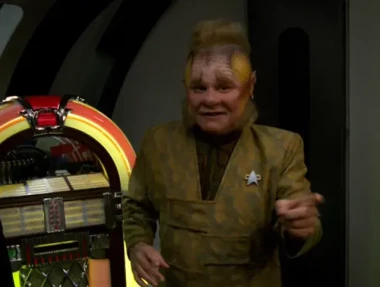Voyagers writers and Memory Alpha don't know when Voyagers final 3 episodes are set. ( lemmy.world )
Doing another Voyager rewatch and something caught my eye that I hadn’t noticed before.
From season 7’s 22nd episode Homestead the writers forgot what year the show was set in. Even contradicting themselves within the same episode.
In the opening of the episode they are celebrating the 315th anniversary of first contact on Earth. So this puts the date at April 5th 2378. However season 7 is set in 2377 with a stardate given during the same episode of 54868.6. Or November 14th 2377. Which being at the end of season would be correct.
Even Memory Alpha lists the wrong year the episode is set in despite having the correct stardate shown.
The in-universe dates for the penultimate and final episodes are also wrong on Memory Alpha.
Renaissance Man takes place on stardate 54890.7 (November 22nd 2377) but is listed as 2378.
Also Endgame is set on December 22nd 2377 and is the day Voyager returns home. Again Memory Alpha says 2378.
It seems someone at Memory Alpha worked out the date first contact day was in Homestead and just went with that instead of converting the star dates to normal calendar dates.
I know it’s a bit of a nitpick but small errors like this bug me.
